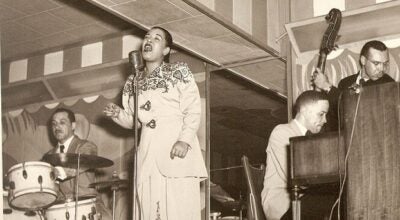Serving those who have served
Published 8:07 am Wednesday, May 25, 2016
Every year, more than 200,000 men and women leave the military and re-enter civilian life. These returning heroes often possess advanced skills and good work habits acquired from valuable service-related training and experiences.
Despite these advantages, however, many veterans encounter obstacles as they transition to civilian life.
Dean Schwartz, the Veterans Affairs School Certifying Official at Southside Virginia Community College, is a wounded veteran, explains that part of the problem stems from the military’s culture. He cites interpersonal communication as just one example. “Military communication is blunt, very blunt, and not following an order can hurt or kill someone.”
As a result, Schwartz says veterans sometimes find it difficult to adjust to civilian perceptions about what it means to be polite. Additionally, veterans who pursue education opportunities are typically nontraditional students, returning to the classroom after a break in schooling.
They are likely to be older than many of their classmates and more likely to have families and dependents. For some veterans, injuries have left lasting disabilities.
For some, settling down after frequent moves is a significant lifestyle change.
Identifying a new career path can also be a challenge. Schwartz says his military training — dealing with landmines, explosives and machine guns — had little applicability to what he wanted to pursue in civilian life.
For him, a successful career meant one devoted to serving others. Swartz has been able to achieve this goal at SVCC, where he meets with veterans, helps them learn about available GI benefits, and guides them as they explore options.
SVCC also reaches out to veterans in other ways. Each of the college’s main campuses hosts a Student Veterans of America chapter.
Monica McMillian, past president of the Christanna chapter, served with the Army Reserves for nearly 10 years. She says SVCC provided a veteran-friendly, comfortable environment with one-on-one assistance that helped her remain motivated.
Sometimes SVCC’s engagement with service members begins while they are still on active duty. In collaboration with the Fort Lee Soldier for Life Program, the Commonwealth Center for Advanced Manufacturing (CCAM), and other partners, the college developed an innovative advanced manufacturing training program.
Its graduates prepare for a seamless transition to civilian employment through the attainment of National Institute for Metalworking Skills (NIMS) certifications.
Financial assistance to qualifying veterans is also available.
The SVCC Foundation administers the William M. “Bunky” Warren Memorial Veteran’s Scholarship and the Jack M. Rainey Memorial Veteran’s Scholarship, both established by American Legion Post 79. Veterans who would like more information about these scholarships, and people or organizations interested in funding additional scholarship opportunities, can call (434) 949-1051.
Former military personnel and transitioning service members who are re-entering civilian life can learn more about the services SVCC offers veterans by contacting Schwartz at (434) 736-2100.
Dr. Al Roberts is president of Southside Virginia Community College. He can be reached via email at al.roberts@southside.edu.



